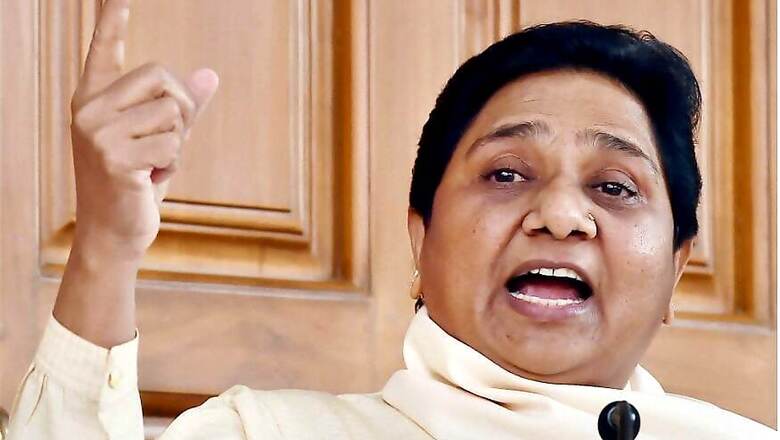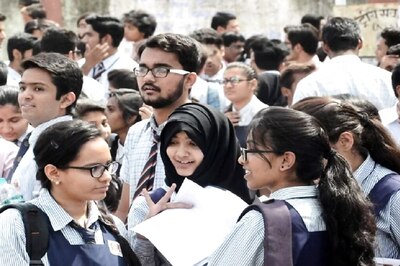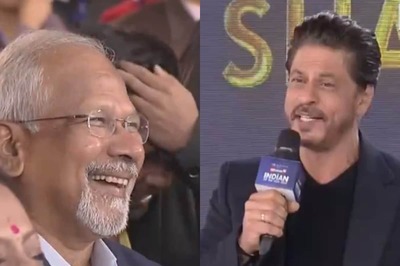
views
New Delhi: It is an acknowledged fact that Prime Minister Narendra Modi and Congress president Rahul Gandhi have a lot riding on the Assembly polls in the Hindi heartland states of Madhya Pradesh, Chhattisgarh, and Rajasthan, seen as a test of their personal popularity.
But these elections are no less important for Bahujan Samaj Party chief Mayawati. Though comparatively a bit player in these three states, the outcome of the polls here will determine if she has the capacity and the support base to emerge as a formidable player on the national scene in the run-up to the 2019 Lok Sabha elections.
Mayawati is clearly testing the waters in these elections. She deliberately shunned a tie-up with the Congress in the three states. Instead, she chose to have an alliance with Congress rebel Ajit Jogi in Chhattisgarh and decided to go solo in Rajasthan and Madhya Pradesh. The objective of this exercise was to safeguard her Dalit base and play kingmaker in case the two national parties fall short of the half-way mark and need propping up.
The BSP chief’s calculations are based on the fact that she has a four to eight percent vote share in the election-going states even though this figure has shown a downward trend over the past few elections. In Madhya Pradesh, for instance, Mayawati’s vote share has come down from 10.61 percent in 2003 to 6.41 per cent in 2013. Similarly, the Rajasthan figures for the same period reveal that the BSP actually dropped from 6.40 to 3.48 percent.
It is the same story in Chhattisgarh where the BSP vote share in 2013 was 4.29 percent, down from 6.49 percent in 2003. Nevertheless, Jogi and Mayawati believe that Chhattisgarh is fertile ground for them. The difference in the vote share of the principal players—the BJP and the Congress – has always been a little over one percent while the margins of victory and defeat are narrow. In such a scenario, a third force, they believe, has the potential to garner sufficient votes and seats to be able to play a key role in the formation of the next state government.
But more importantly, a credible performance by the BSP in these state polls will strengthen Mayawati’s bargaining power with potential allies in Uttar Pradesh, where she is a dominant player, and in other states, as she seeks to expand her base nationally.
Alternatively, if the Congress succeeds in forming governments in any of three Hindi heartland states without the help of the BSP, it will impact her capacity to extract a respectable deal in subsequent seat-sharing negotiations.
Like other regional satraps, Mayawati also nurses national ambitions and believes she has the requisite credentials to lead a coalition of opposition parties being proposed for the 2019 Lok Sabha polls. At the same time, she also realises she has to necessarily spread her wings beyond UP and add to her kitty of MPs for which she needs the support of other parties. Unlike other regional satraps like West Bengal Chief Minister Mamata Banerjee whose influence is restricted to her home state, Mayawati has pockets of influence across states.
Consequently, the BSP chief revised her party’s earlier stand of having no pre-poll alliances and instead decided to leverage her strength to strike poll pacts with other regional parties. After the BSP’s dismal performance in the 2014 Lok Sabha election, followed by its equally poor show in last year’s Uttar Pradesh assembly polls, Mayawati shed her earlier antipathy towards her main political rival, the Samajwadi Party, and declared that the two traditional political opponents will henceforth work together. The victories notched by the two parties in the Gorakhpur, Phulpur and Kairana by-elections earlier this year demonstrated that the SP-BSP combine can successfully checkmate a resurgent BJP in Uttar Pradesh.
Besides safeguarding her home turf, Mayawati also reached out to Om Prakash Chautala’s Indian National Lok Dal in Haryana and Deve Gowda’s Janata Dal (S) in Karnataka. Though the BSP’s partnership in Haryana is currently in trouble following internal squabbles in the Chautala family, the alliance in Karnataka helped Mayawati mop up Dalit votes and win a seat in the recent Assembly election.
Mayawati followed this up by sealing an electoral pact with Jogi’s Janta Congress Chhattisgarh. Though the BSP chief has not closed the door on the Congress, she is not comfortable with doing business with the grand old party since it has traditionally enjoyed the support of the scheduled castes and has the potential of disturbing her Dalit support base.
The December 11 results of the Assembly polls in Madhya Pradesh, Chhattisgarh and Rajasthan will show if Mayawati will get the necessary push to pursue her prime ministerial ambitions. Or maybe, she overplayed her hand.
(The author is senior journalist, views are personal)




















Comments
0 comment